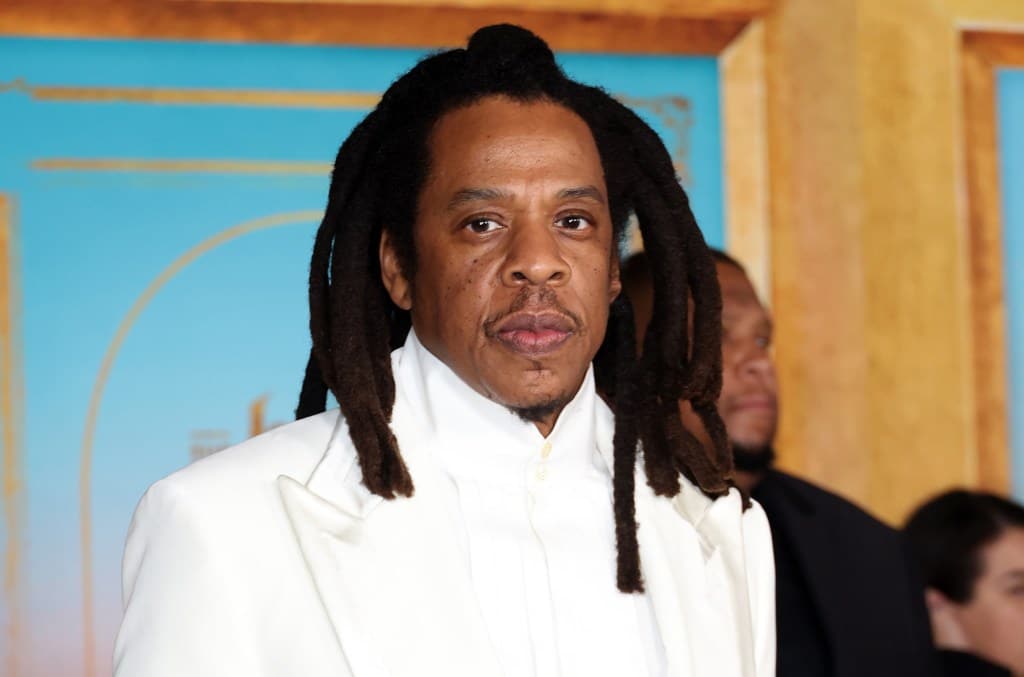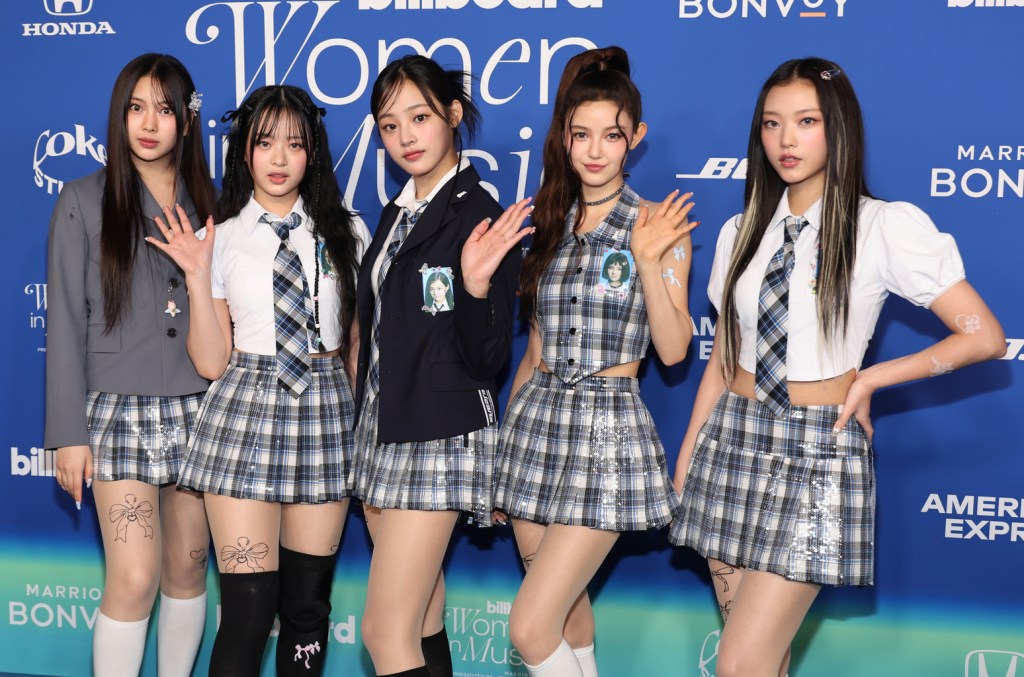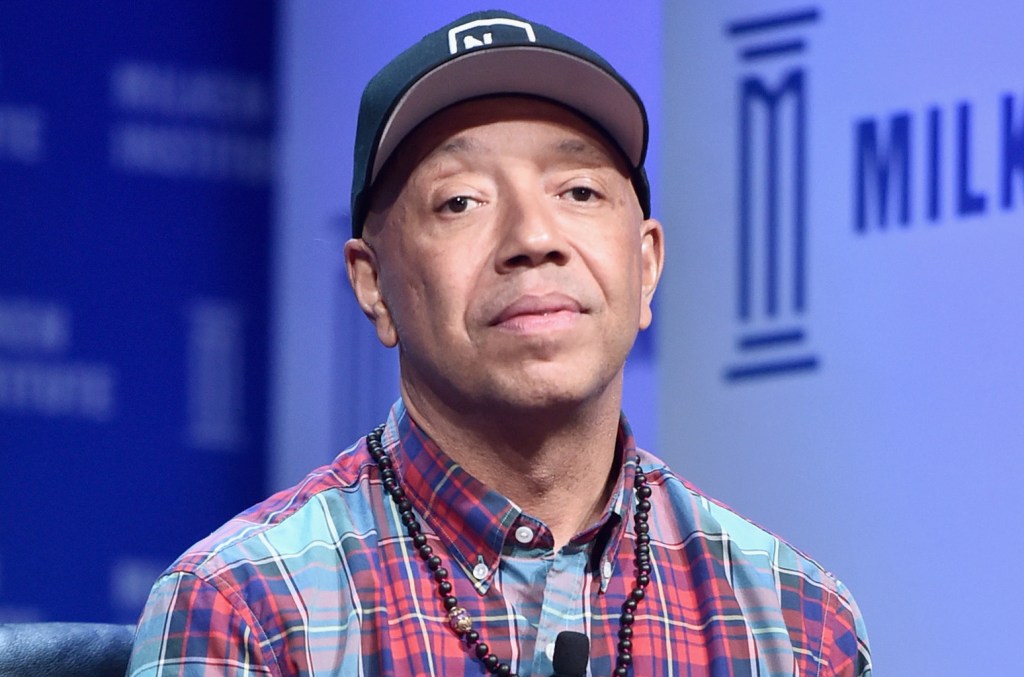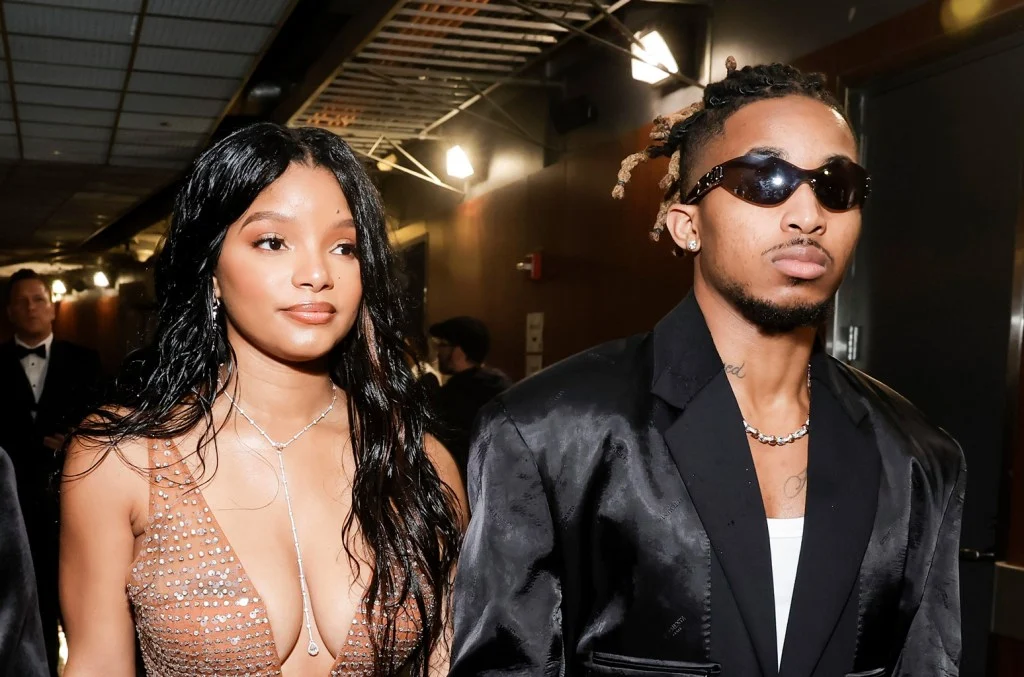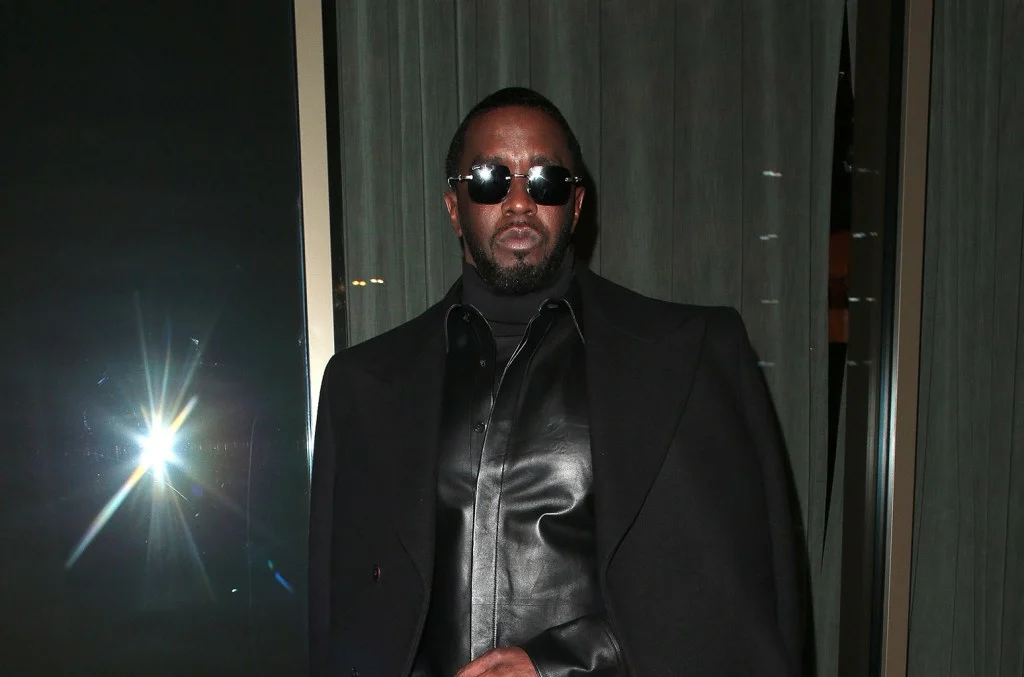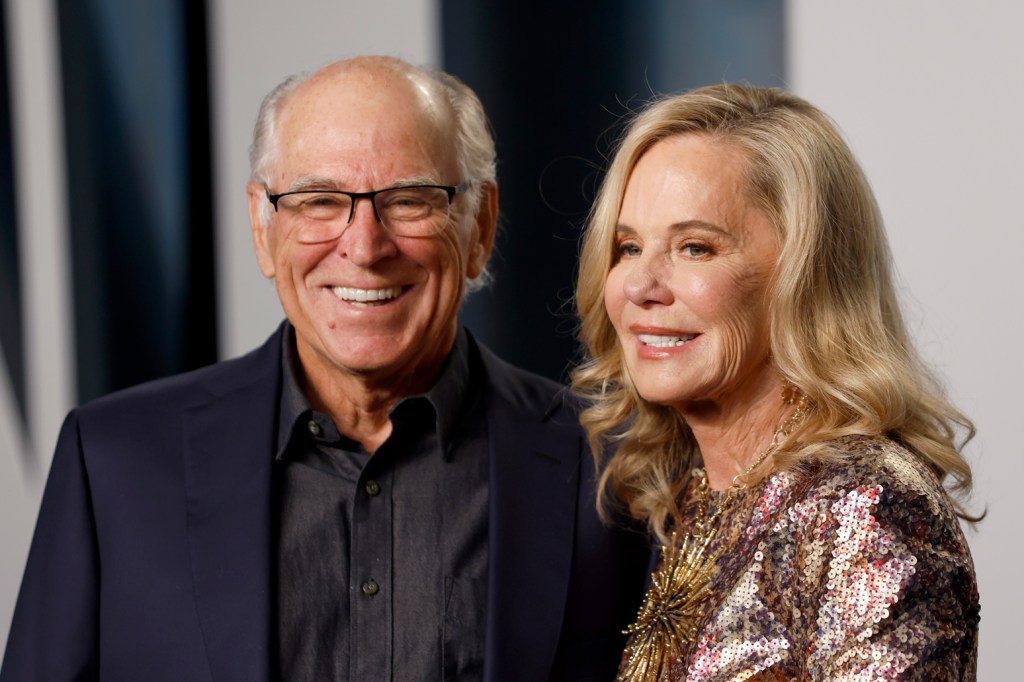Legal News
Page: 13
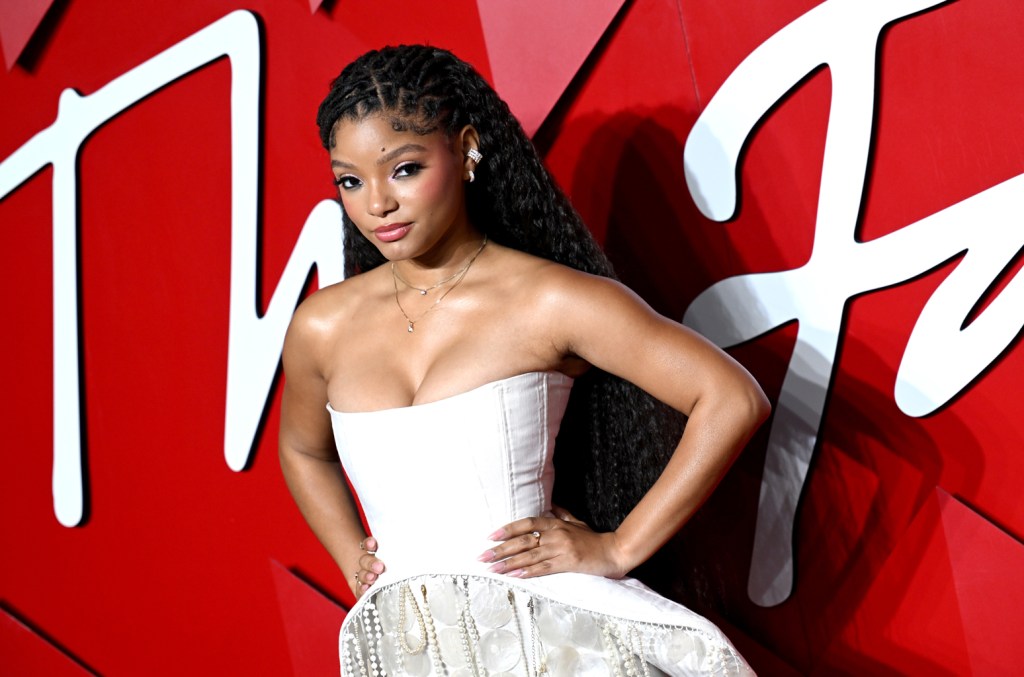
Halle Bailey has denied DDG’s claim that her history of threatening self-harm poses a risk to their child’s wellbeing, telling a judge that the rapper is exaggerating about her since-treated mental health struggles and she’s “100% available and capable as a parent to our son.”
The arguments come in a custody battle that began last month when Bailey accused DDG (Darryl Dwayne Granberry Jr.) of physically attacking her multiple times in the presence of their 18-month-old son, Halo. A judge granted the 25-year-old singer and actress a temporary domestic violence restraining order and full custody of Halo pending a court hearing.
That hearing was supposed to happen Wednesday (June 4), but got delayed when DDG filed a competing custody case that highlighted Bailey’s history of threatening self-harm. Bailey is now addressing those claims, saying in a response declaration that the 27-year-old Twitch rapper “has exaggerated, lied and misconstrued for the court, not only the history of our relationship, but our parenting and my mental health.”
“I have been very vocal about my anxiety, depression and previous thoughts of suicide,” wrote Bailey in the declaration. “Without waiving the psychotherapist-patient privilege and physician-patient privilege, I have reached out to my doctor and received treatment to address these issues. I have been and remain 100% available and capable as a parent to our son, Halo.”
Bailey notes that the bulk of the mental health incidents cited by DDG date back to 2022 and 2023, when she was “emotionally devastated” by the rapper’s behavior. But Bailey says DDG never raised any concerns about her parenting abilities until the very day her domestic abuse claims were set for a court hearing.
“Had Darryl really been concerned about my parenting, he would have taken action prior to this time,” wrote Bailey. “This is cold retribution to embarrass, humiliate and caused me additional emotional distress.”
On Wednesday evening, Judge Latrice A.G. Byrdsong partially granted DDG a temporary restraining order that bars Bailey from engaging in any physical or emotional abuse. But the judge is leaving Halo in Bailey’s sole custody until the hearing that’s now scheduled for June 24.
The judge also denied DDG’s request to stop Bailey from bringing Halo with her to Italy, where she’s scheduled to shoot a movie for two months this summer.
“The court finds insufficient evidence of imminent emotional and psychological risk to the minor child during petitioner’s business trip to Italy,” wrote the judge. “Further evidence is required at a noticed hearing for the court to issue more restrictive orders.”
Reps for Bailey and DDG did not immediately return requests for comment on Thursday (June 5).
Locked in a legal war with Jay-Z, attorney Tony Buzbee is now quoting the star’s lyrics from “Big Pimpin” in his latest court filings, claiming they describe the rapper’s views on “how men should treat women.”
Jay-Z (Shawn Carter) and Buzbee have been battling for months after the Texas lawyer filed shocking rape allegations against him last year. Those claims, which the star denied, were quickly dropped – and now Jay is suing the attorney for defamation and extortion across two different court cases.
Seeking to dismiss one of them, Buzbee took an unusual step Wednesday: directly quoting from decades-old lyrics in his legal filings. The song, the 2000 smash hit “Big Pimpin’,” includes crass references to prostitution – which Buzbee suggests contradicts Jay-Z’s claims to a stellar reputation.
Trending on Billboard
“Carter’s latest pleading bemoans what he describes as the ‘incredibly painful’ event of explaining [the rape] allegations to ‘his wife’ and ‘their children,’” Buzbee writes. “To put those allegations in their proper context, it is helpful to view them alongside the following lyrics from one of Carter’s most successful songs, which became famous nationwide around the time [the accuser] claims her sexual assault occurred.”
The filing included four lines from the opening verse of “Big Pimpin’,” including: “You know I thug ‘em, f*ck ‘em, love ‘em, leave ‘em ‘cause I don’t f*ckin’ need ‘em / Take ‘em out the hood, keep ‘em lookin’ good but I don’t f*ckin’ feed ‘em.”
“Released more than 25 years ago, this song of Carter’s, like many of the others that made him famous, contains lyric after lyric describing Carter’s views on the loss of innocence and how men should treat women,” Buzbee writes in the filing.
Jay-Z himself has previously expressed regret about the lyrics to “Big Pimpin’,” which reached No. 18 on the Hot 100 and spent 20 weeks on the chart in 2000. In a 2010 interview with the Wall Street Journal, he said that re-reading the song’s words was “really harsh.”
“Some [lyrics] become really profound when you see them in writing. Not ‘Big Pimpin’. That’s the exception,” Jay-Z said at the time. “It was like, I can’t believe I said that. And kept saying it. What kind of animal would say this sort of thing?”
The use of rap lyrics in court cases has become increasingly controversial in recent years, as critics argue that statements made in hip hop songs are unfairly treated more literally than other song lyrics. Efforts have been made to ban rap from criminal cases, and a group of law scholars recently warned that Drake’s civil lawsuit – claiming the lyrics to Kendrick Lamar’s “Not Like Us” defamed him – is “dangerous” and could have a “chilling effect” on future artists.
The case against Jay-Z, filed in December, claimed that he and Sean “Diddy” Combs raped a 13-year-old Jane Doe at an after-party following the 2000 MTV Video Music Awards. Jay-Z forcefully denied the allegations, calling them a “blackmail attempt” by Buzbee and his client. And after just two months of heated litigation, the accuser dropped her case without a settlement payment.
Weeks after the case was dropped, Jay-Z sued both Doe and Buzbee in Alabama, accusing her of defamation and accusing both of malicious prosecution and other wrongdoing. That case followed an earlier lawsuit in California in which the star accused Buzbee of extortion and defamation.
In Wednesday’s filing, the Texas lawyer asked a federal judge to dismiss the Alabama case, calling it a “clear attempt by Carter to punish his accuser and silence potential accusers.” And he cited the “Big Pimpin’” lyrics, using them to suggest that Jay-Z was being hypocritical when he said he “mourns his children’s loss of innocence.”
A rep for Jay-Z did not immediately return a request for comment on the new filing. In a statement to Billboard on Thursday, Buzbee said: “Mr. Carter’s lawyers have spent millions of dollars aggressively trying to cast me as a villain and unethical person with blatant lies and half truths. At the same time they’ve vainly attempted to portray Mr. Carter as a bastion of virtue. Look at my background and compare it to his. I’m a Marine Corps Captain who served my country in the infantry and recon during two conflicts. Enough said.”
Jay-Z’s California case against Buzbee also remains pending. As reported by Rolling Stone, the judge hinted in February that he might dismiss Jay-Z’s extortion claims while allowing the defamation claim against Buzbee to move ahead. Following new evidence about recorded conversations and a heated April hearing, the judge is still currently mulling whether and how the case should proceed.
The ongoing dispute between K-pop breakout group NewJeans and its agency ADOR, a HYBE subsidiary, escalated this week as the Seoul Central District Court approved a stricter legal measure restricting the group’s independent activities. In a ruling issued Friday (May 31), the court granted ADOR’s request for indirect compulsory enforcement, ordering each member of the group — Minji, Hanni, Danielle, Haerin and Hyein — to pay 1 […]
Russell Simmons is suing HBO for defamation over a 2020 documentary focused on the sexual assault allegations against him, claiming the film disregarded evidence in his favor — including “CIA-grade polygraph results” and Oprah Winfrey’s withdrawal from the project.
In a complaint filed Tuesday (June 3) in Manhattan court, attorneys for Simmons say the movie On The Record defamed him by ignoring key information — including from over 20 witnesses — that would have “refuted and rebutted” the allegations that were “falsely made against plaintiff in the film.”
“The evidence and information were made available to defendants, including then CEO of WarnerMedia John Stankey, Chairman and CEO of HBO and Max Content, Casey Bloys,” the star’s lawyers write. “However, the Defendants disregarded and/or suppressed said materials.”
Spokespeople for HBO and parent company Warner Bros. Discovery did not immediately return a request for comment Wednesday (June 4).
Simmons, who founded Def Jam Recordings in 1984 and later built a formidable hip-hop empire, has faced a slew of abuse allegations since 2017 — first in an investigative article by the New York Times, then in the HBO doc. The film, directed by Kirby Dick and Amy Ziering, centered on claims made by Drew Dixon, a former A&R at Def Jam who says Simmons raped her, but also featured interviews with several other alleged victims.
In his complaint, Simmons says he provided HBO and the filmmakers with ample evidence that was “supportive and favorable” to him and would have countered those allegations. And he says the network was urged to consider that info by “luminaries in media and politics,” including “civil rights leaders and members of Congress.”
Simmons says the favorable evidence included “nine consecutive credible and favorable CIA-grade polygraph results” — presumably tests taken by him about the accusations. He also says HBO ignored the fact that Winfrey, the movie’s original executive producer, had withdrawn her support after “publicly noting inconsistencies in the accusations.”
“Defendants willfully, and/or recklessly, disregarded and suppressed said information and evidence, and published, and continue to republish defamatory content,” attorneys for Simmons wrote.
The lawsuit could face procedural challenges. The statute of limitations for libel lawsuits in New York is one year, a limit that has clearly lapsed for a movie released in 2020. Simmons’ lawyers will likely argue that he has continued to be defamed by new re-issues of the documentary, particularly in foreign markets.
The new case is a role reversal for Simmons, who has already been on the receiving end of a defamation lawsuit from Dixon over claims that he defamed her by suggesting during a podcast interview that she was lying about her allegations. He’s also facing a sexual assault lawsuit from another unnamed alleged victim.
DDG has countered Halle Bailey’s domestic violence accusations with a request for a restraining order of his own, telling a judge that the 25-year-old singer and actress is abusive and has repeatedly threatened self-harm for emotional manipulation.
The 27-year-old streamer and rapper DDG (Darryl Dwayne Granberry Jr.) made the allegations in a counter-petition filed Wednesday (June 4) against Bailey, who won a temporary domestic violence restraining order last month after claiming DDG had physically attacked her multiple times in the presence of their 18-month-old son, Halo.
DDG denies abusing Bailey and says he’s actually the one who needs protection. He claims Bailey has repeatedly punched and slapped him, stalked him by hiding Airtags in his cars, and threatened to take her own life during jealous outbursts when he attempted to end their relationship or “establish boundaries.”
Trending on Billboard
According to the counter-petition, Bailey has at various times threatened suicide with both a knife and a gun. DDG says Bailey has also used Halo as a tool of manipulation, threatening to get an abortion during the pregnancy and, now, blocking his access to the child.
“In or about August 2023, during a particularly volatile argument, petitioner became enraged and threatened to end her life using my legally owned firearm. Without my consent, she took the weapon and left the house,” wrote DDG in a declaration attached to his court filing. “This incident was one of several in which petitioner’s actions posed a serious threat to her own safety and the safety of our son by creating an environment of emotional distress and danger within the home.”
DDG’s counter-petition includes pages of text messages between the duo, including messages where Bailey writes, “IM GOONG TO KILL MYSWLF TONIGHT” [sic] and “I am simply not tough enough for this world. Please take halo so he doesn’t have to see.”
The DDG counter-petition seeks a stay-away order against Bailey and for the court to award him joint or shared custody of Halo, who is currently in Bailey’s sole custody per the temporary restraining order.
DDG is also asking to bar Bailey from taking Halo with her to Italy for two months to film a movie beginning this weekend. Bailey has sought court permission to bring Halo on the contractually mandated film shoot, but DDG’s counter-petition says international travel is dangerous because Bailey poses a psychological risk to both herself and the child.
“A parent who has threatened suicide repeatedly — who has armed herself with a firearm while in emotional crisis, who has driven with the child in a potentially suicidal state, and who continues to escalate when emotionally dysregulated — cannot be entrusted to care for a vulnerable infant abroad, without the safety net of California court supervision, welfare checks, mental health intervention or child protective services,” wrote DDG’s attorney Larry Bakman in the court papers.
Bailey’s reps did not immediately return a request for comment on the allegations, though her attorney, Terry Levich Ross, said during a hearing in Los Angeles court on Wednesday that DDG’s counterclaims are “not accurate.”
During that hearing, Judge Latrice A.G. Byrdsong said she’ll issue a decision soon as to whether Bailey can bring Halo when she departs for Italy on Saturday (June 7). A full hearing is set for June 24 on the duo’s competing petitions for permanent restraining orders against each other.
One of Cassie Ventura’s friends testified Wednesday that Sean “Diddy” Combs dangled her over a 17th-floor balcony, telling jurors that the incident left her with “night terrors and paranoia.”
On the witness stand during the fourth week of the music mogul’s sex-trafficking trial, Bryana Bongolan said she had been at Ventura’s apartment in 2016 when Combs stormed in unexpectedly, according to CNN. She told the jurors that the star dangled her over a balcony, then threw her into furniture.
The attack left her with injuries both physical and psychological, Bongolan said: “I have night terrors and paranoia and scream in my sleep at times.”
Bongolan is one of many witnesses already called by prosecutors, who claim Combs ran a criminal enterprise aimed at coercing Ventura and other women into participating in drug-fueled sex shows known as “freak-offs.” Defense attorneys have said the sex was consensual and that Combs merely operated a legitimate music business.
The alleged balcony incident has long been one of the flashiest accusations against Diddy. It was referenced in Ventura’s civil lawsuit that sparked the rapper’s downfall, and prosecutors mentioned it in the indictment and in other pre-trial court filings. Bongolan herself described it in detail in a civil lawsuit she filed last year.
On the witness stand Wednesday, she described it for jurors, saying it had left her with “a bruise on the back of my leg and back and neck pain.”
Bongolan also testified that she once saw Diddy throw a knife at Ventura, and about another time that she saw Cassie with a black eye. She also told jurors about an alleged incident at a photoshoot in which Combs threatened her life.
“He came up really close to my face and said something around the lines of, ‘I’m the devil and I could kill you,’” Bongolan said.
Combs was indicted in September, charged with running a sprawling criminal operation aimed at facilitating the freak-offs — elaborate events in which Combs and others allegedly coerced Ventura and other victims into having sex with escorts while he watched and masturbated. Prosecutors also say the star and his associates used violence, money and blackmail to keep victims silent and under his control. (Read Billboard‘s full explainer of the case against Diddy here.)
Once one of the music industry’s most powerful men, Combs is accused of racketeering conspiracy (a so-called RICO charge), sex trafficking and violating a federal prostitution statute. If convicted on all of the charges, he faces a potential sentence of life in prison.
The trial, which has already featured testimony from Ventura herself, another unnamed victim named Mia and numerous other witnesses, is expected to run until early July. Bongolan is expected to continue testifying in the afternoon.
Jimmy Buffett’s widow has filed a court petition asking to replace her co-trustee on the late singer-songwriter’s $275 million estate, saying a business manager tapped to handle the assets has been “openly hostile and adversarial” while ignoring her requests for financial transparency.
The petition was filed Tuesday (June 3) by the late singer’s wife of 46 years, Jane Buffett, who married Jimmy Buffett in 1977 and was made sole beneficiary of a marital trust holding the bulk of the hitmaker’s assets upon his death in September 2023 at the age of 76. The court filing says these assets, including real estate and a 20% stake in his successful island-themed hospitality company Margaritaville, are worth roughly $275 million.
Jimmy’s will named Rick Mozenter, an accountant at the business management firm Gelfand Rennert & Feldman, as co-trustee to help Jane administer the estate. But Tuesday’s petition says that rather than help Jane, Mozenter has actually made life more difficult following her husband’s death.
Trending on Billboard
“Mr. Mozenter has failed to perform even the most basic tasks required of him in his role as co-trustee, including providing Mrs. Buffett with information concerning trust assets and finances, which has left Mrs. Buffett in the dark with regard to the state of her own finances,” write Jane’s lawyers from the firm Sullivan & Cromwell. “Along the way, Mr. Mozenter has belittled, disrespected and condescended to Mrs. Buffett in response to her reasonable requests for information she undoubtedly was entitled to receive.”
According to the court filing, Jane met with Mozenter a month after Jimmy’s death in October 2023 and asked how much income she should expect to receive annually from the trust. Mozenter dragged his feet for 16 months, Jane’s lawyers say, repeatedly ignoring her requests to get an answer as she tried to make plans for her future.
Mozenter finally provided this estimate in February 2025, and the results were “shocking.” Mozenter told Jane she would see less than $2 million in annual income — an amount that would not cover Jane’s expenses and “a remarkably poor return for a trust with an estimated $275 million in assets,” the petition states.
Jane’s lawyers say this estimate was especially surprising because the trust had received more than $14 million in distributions from Margaritaville over the previous 18 months. This made Jane concerned that Mozenter was mismanaging the trust and she requested additional financial information from him, but the accountant once again stonewalled.
The court filing also claims Mozenter has been “unprofessional and combative” to Jane and that he refused her request to sell a piece of Bahamas real estate, even though the Buffett family rarely uses this property and its costs more than $300,000 a year to operate. Mozenter has billed more than $1.7 million in fees while engaging in this alleged wrongdoing, Jane’s attorneys claim.
“Faced with what clearly has become an unsolvable rift with Mr. Mozenter, and the prospect of having to continue to unsuccessfully request that he discharge his duties, on May 30, 2025, Mrs. Buffett asked that Mr. Mozenter resign as co-trustee,” says the petition. “Mr. Mozenter refused, insisting that he remain in a position of authority over her wealth. The situation is untenable and Mrs. Buffett requests this court’s assistance to resolve it.”
Jane’s lawyers are asking a judge to remove Mozenter from the trust and replace him with a new co-trustee. The petition suggests Daniel Neidich, the CEO of investment firm Dune Real Estate Partners, for the job.
Mozenter did not immediately respond to a request for comment on the petition.
THE BIG STORY: Is the music industry’s billion-dollar legal battle over artificial intelligence suddenly going to be over before it starts? I wouldn’t count on it just yet.
News broke this weekend that Universal Music, Warner Music and Sony Music were each in talks to license their songs to Suno and Udio for use in training AI models to spit out new songs – less than a year after the music companies filed blockbuster copyright cases accusing the AI startups of stealing music on an “unimaginable scale.”
Both sides have framed those cases as an existential fight over the future of music. The labels says Suno and Udio are “trampling” the rights of real musicians in an effort to replace them; the startups argue back that the music giants are abusing intellectual property to crush a new technology that threatens their market share.
Trending on Billboard
Is an actual deal imminent? I’d lean toward no. Low-boil settlement talks are a common and continuous feature of almost any litigation, and it’s unclear exactly how far they’ve gotten here. The labels have long said they’re open to listening, but striking a final deal – rather than just discussing one in broad strokes – will require solving a long list of incredibly complex problems, as my colleague Kristin Robinson writes.
The choice confronting the music giants in these talks – to strike a deal or fight it out in court – is one facing all creative industries amid the rise of artificial intelligence. If you sell your content to AI firms, you earn short term profits…by empowering a technology that might destroy you in the long run. If you fight it out, you risk being left behind amid a technological revolution, all for what could be a losing cause.
For the music business, history makes that an especially grueling choice. Nobody wants a replay of the 2000s, when labels chose to fight an ascendant new technology in court rather than harness and exploit its potential for profit. Only when the majors opted to partner with streamers like Spotify – in equity stake deals eerily similar to those being discussed with Suno and Udio – did the industry begin the long climb to recovery.
But digital music merely represented a new distribution system, and one where the tech partners would ultimately always need to pay real musicians for their output. If the labels end these lawsuits by handing over their catalogs for AI training now, those new partners might one day no longer need them at all.
You’re reading The Legal Beat, a weekly newsletter about music law from Billboard Pro, offering you a one-stop cheat sheet of big new cases, important rulings and all the fun stuff in between. To get the newsletter in your inbox every Tuesday, go subscribe here.
Other top stories this week…
LIZZO’S APPEAL – Lizzo’s lawyers launched an appeal aimed at ending a sexual harassment lawsuit filed by her former backup dancers, calling it an “attack” on her “First Amendment right to perform her music and advocate for body positivity.” Lizzo’s attorneys say her behavior toward the dancers was clearly part of her artistic approach — and thus shielded by constitutional protections for free speech.
SHADY FACEBOOK MUSIC? – Eight Mile Style, a company that owns much of Eminem’s catalog, filed a copyright lawsuit against Meta over accusations that Facebook and Instagram made “Lose Yourself” and other iconic tracks available to billions of users without permission. The case claimed that the social media giant added Eminem’s songs to its music library without the necessary licenses, violating copyright law on a “massive” scale in the pursuit of “obscene monetary benefit.”
OFFENSE AS DEFENSE – Smokey Robinson filed a countersuit against four longtime housekeepers who recently accused him of rape, claiming the allegations were part of an “extortionate scheme” by the women and their attorneys. The Motown legend accused the women and their lawyers of defamation, invasion of privacy, civil conspiracy and even elder abuse over the “fabricated” allegations.
YOUNGBOY PARDONED – President Donald Trump granted a pardon to YoungBoy Never Broke Again, who was released from prison in April after pleading guilty last year to a single count of possession of firearms by a convicted felon. The rapper, who has faced legal trouble for years, thanked the president on social media: “This moment means a lot. It opens the door to a future I’ve worked hard for and I am fully prepared to step into this.”
TRAFFIC DEATH – Ex-Red Hot Chili Peppers guitarist Josh Klinghoffer reached a plea deal with prosecutors to avoid prison time after striking and killing 47-year-old Israel Sanchez with his car in Los Angeles last year. Under the terms of the deal, the rocker pleaded no contest to misdemeanor vehicular manslaughter without gross negligence and was sentenced to one year of informal probation and 60 days of community labor.
SPOUSAL SUPPORT – Offset updated his divorce filings to demand that his estranged wife Cardi B pay him spousal support after their split is finalized. In an amended version of his answer to Cardi’s divorce petition, the Migos star added a request for an unspecified amount of alimony, but remains unchanged otherwise. The pair of superstars are one year into an increasingly acrimonious divorce case following six years of marriage.
BILLION WITH A B – The Justice Department urged the U.S. Supreme Court to tackle a billion-dollar lawsuit over music piracy filed by the major labels against Cox Communications, warning that a “sweeping” ruling could force internet providers to cut off service to many Americans. The case, in which the labels won a $1 billion verdict in 2019, saw a lower court hold Cox itself liable for widespread illegal downloading by its users.
FIVIO PLEA DEAL – Brooklyn rapper Fivio Foreign took a plea deal to end a criminal case stemming from allegations he pulled a gun on a New Jersey woman after she asked him to jump her car while pulled over. Under the terms of the deal, Fivio admitted to one count of third-degree terroristic threats in return for prosecutors dropping four other charges, including unlawful possession of a weapon and aggravated assault.
Lizzo is launching an appeal aimed at ending a sexual harassment lawsuit filed by her former backup dancers, calling it an “attack” on her “First Amendment right to perform her music and advocate for body positivity.”
The blockbuster case, filed in 2023, accuses the star (Melissa Jefferson) of sexual harassment and discrimination. Though a judge dismissed some claims last year – including a headline-grabbing claim about fat-shaming – he allowed the overall lawsuit to move ahead toward a jury trial.
In an opening brief filed last month, her attorneys urged an appeals court overturn that ruling and toss out the entire case. They say Lizzo’s behavior toward the dancers was clearly part of her artistic approach — and thus shielded by constitutional protections for free speech.
Trending on Billboard
“Plaintiffs’ suit [is] an attack on Lizzo’s First Amendment right to perform her music and advocate for body positivity,” writes Lizzo’s attorneys, who include prominent Hollywood defense attorney Marty Singer. “Rather than accept personal accountability, plaintiffs filed this shotgun action, taking aim at nearly every facet of Lizzo’s creative process.”
One key claim in the case against Lizzo is that she pushed the dancers to attend a sex show in Amsterdam’s Red Light District at a venue called Bananenbar, then pressured them to touch and engage with nude performers. But her lawyers say that incident – which they stress was entirely optional — was directly tied to the creation of her art and thus cannot form the basis of legal liablity.
“There’s no disagreement that Lizzo held these outings as a necessary part of her creative process,” Singer writes. “Early social gatherings during international tours (like the Bananenbar) are critical to teambuilding and fostering cohesion.”
The case against Lizzo, filed by Arianna Davis, Crystal Williams and Noelle Rodriguez, accused the singer and her Big Grrrl Big Touring Inc. of creating a hostile work environment via sexual harassment, religious and racial discrimination. It also accused her of disability discrimination based on weight-shaming – a loaded allegation against a star who had made body positivity a key part of her personal brand.
Lizzo quickly denied any wrongdoing, calling the claims “false” and “sensationalized” and vowing to fight back: “I am very open with my sexuality and expressing myself but I cannot accept or allow people to use that openness to make me out to be something I am not.”
The star’s legal defense centered on California’s so-called anti-SLAPP law — a special statute that makes it easier to quickly end lawsuits that threaten free speech. In seeking to dismiss the case under that law, Lizzo’s lawyers argued the dancers wanted to “silence” Lizzo and “weaponize” her creative expression against her.
In early 2024, Judge Mark H. Epstein partly endorsed that argument and tossed out several allegations, including the discrimination claims about fat-shaming. But he allowed numerous accusations to move ahead toward a potential trial, including those over the Amsterdam sex show.
“It is dangerous for the court to weigh in, ham-fisted, into constitutionally protected activity,” the judge wrote. “But it is equally dangerous to turn a blind eye to allegations of discrimination or other forms of misconduct merely because they take place in a speech-related environment.”
In appealing that ruling, Lizzo’s lawyers argue that it’s dangerous for judges to wade into an artist’s creative process. They cite earlier court rulings that say such work includes discussion of “many bizarre and potentially offensive ideas” and can be “unpredictable.”
“Judges must not dissect the creative process to determine what was necessary to achieve the final product and what was not,” Lizzo’s lawyers write. “By rejecting the artist’s proven experience for what is necessary to, and best enhances, her own art, the trial court stepped far outside its role.”
A rep for lawyers for Davis, Williams and Rodriguez did not immediately return a request for comment. They will file their own appellate brief later this month aimed at rebutting Lizzo’s arguments. The two sides will then argue the case before the court at some point in the coming months.
If the appeals court sides with Lizzo, the case will be dismissed. If the court sides with Davis, Williams and Rodriguez, the case will return to Epstein’s court and move toward an eventual jury trial.
Universal Music, Warner Music and Sony Music are in talks with Udio and Suno to license their music to the artificial intelligence startups, Billboard has confirmed, in deals that could help settle blockbuster lawsuits over AI music.
A year after the labels filed billion-dollar copyright cases against Udio and Suno, all three majors are discussing deals in which they would collect fees and receive equity in return for allowing the startups to use music to train their AI models, according to sources with knowledge of the talks. Bloomberg first reported the news on Sunday (June 1).
If reached, such deals would help settle the litigation and establish an influential precedent for how AI companies pay artists and music companies going forward, according to the sources, who requested anonymity to discuss the talks freely.
Trending on Billboard
Such an agreement would mark an abrupt end to a dispute that each side has framed as an existential clash over the future of music. The labels say the startups have stolen music on an “unimaginable scale” to build their models and are “trampling the rights of copyright owners”; Suno and Udio argue back that the music giants are abusing intellectual property to crush upstart competition from firms they see as a “threat to their market share.”
Settlement talks are a common and continuous feature of almost any litigation and do not necessarily indicate that any kind of deal is imminent. It’s unclear how advanced such negotiations are, or what exactly each side would be getting. And striking an actual deal will require sorting out many complex and novel issues relating to brand-new technologies and business models.
Reps for all three majors declined to comment. Suno and Udio did not immediately return requests for comment. A rep for the RIAA, which helped coordinate the lawsuits, declined to comment.
If Suno and Udio do grant equity to the majors in an eventual settlement, it will call to mind the deals struck by Spotify in the late 2000s, in which the upstart technology company gave the music industry a partial ownership stake in return for business-critical content. Those deals turned out to be massively lucrative for the labels and helped Spotify grow into a streaming behemoth.
The cases against Udio and Suno are two of many lawsuits filed against AI firms by book authors, visual artists, newspaper publishers and other creative industries, who have argued AI companies are violating copyrights on a massive scale by using copyrighted works to train their models. AI firms argue that it’s legal fair use, transforming all those old works into “outputs” that are entirely new.
That trillion-dollar question remains unanswered in the courts, where many of the lawsuits, including those against Suno and Udio, are still in the earliest stages. But last month, the U.S. Copyright Office came out against the AI firms, releasing a report that said training was likely not fair use.
“Making commercial use of vast troves of copyrighted works to produce expressive content that competes with them in existing markets, especially where this is accomplished through illegal access, goes beyond established fair use boundaries,” the office wrote in the report.
Even with the legal landscape unsettled, some content companies have struck deals with AI firms. Just last week, the New York Times — which is actively litigating one of the copyright cases — struck a deal to license its editorial content to Amazon for AI training. Last fall, Microsoft signed a deal with HarperCollins to use the book publisher’s nonfiction works for AI model training.
Music companies have not struck any such sweeping deals, and instead have preferred more limited partnerships with tech companies for “ethical” AI tools. UMG signed a deal last summer with SoundLabs for an AI-powered voice tool for artists and another one in November with an AI music company called KLAY. Sony made an early-stage investment in March in a licensed AI platform called Vermillio.

 State Champ Radio
State Champ Radio 